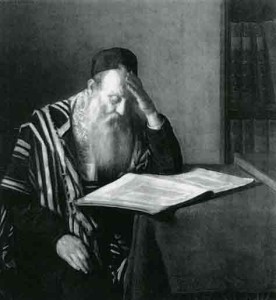 The Amoraim made use of various techniques to impart the oral Torah to their students. Most prominent was simple repetition. To aid in memorizing, since the oral Torah was transmitted and taught through an oral process, mnemonic devices and other formulations were used.
The Amoraim made use of various techniques to impart the oral Torah to their students. Most prominent was simple repetition. To aid in memorizing, since the oral Torah was transmitted and taught through an oral process, mnemonic devices and other formulations were used.
“R. Pereda had a pupil whom he taught his lesson four hundred times before the latter could master it. On a certain day having been requested to attend to a religious matter he taught him as usual but the pupil could not master the subject. ‘What’, the Master asked: ‘is the matter to-day?’ — ‘From the moment’, the other replied. ‘the Master was
told that there was a religious matter to be attended to I could not concentrate my thoughts, for at every moment I imagined, now the Master will get up or now the Master will get up’. ‘Give me your attention’, the Master said, ‘and I will teach you again’, and so he taught him another four hundred times. A bath kol issued forth asking him, ‘Do you prefer that four hundred years shall be added to your life or that you and your generation shall be privileged to have a share in the world to come?’ — ‘That’, he replied. ‘I and my generation shall be privileged to have a share in the world to come’. ‘Give him both’, said the Holy One, blessed be He. R. Hisda stated: The Torah can only be acquired with [the aid of] mnemonic signs, for it is said: Put it in their mouths; read not, ‘put it’ but ‘its mnemonic sign’.
R. Tahlifa of the West heard this and proceeding to R. Abbahu told it to him. ‘You’, the other said to him, ‘deduce this from that text; we deduce it from this one: Set thee up waymarks, make thee’, etc.; devise [mnemonic] signs for the Torah. What proof, however, is there that the expression of ziyyun means a sign? — Since it is written, And any seeth a man’s bone, then shall be set up a sign by it.
R. Eleazar said: The deduction is made from this text: Say unto wisdom, ‘Thou art my sister’, and call understanding they kinswoman, devise [mnemonic] signs for the Torah — Raba expounded: Appoint fixed times for the study of the Torah.
This is in harmony with the following statement of R. Abdimi b. Hama b. Dosa: What is the significance of the text: It is not in heaven, [that thou shouldst say: ‘who shall go up for us to heaven, and bring it unto us’], neither is it beyond the sea [that thou shouldst sat, ‘Who shall go over the sea for us, and bring it unto us’]? ‘It is not in heaven’, for if it were in heaven you should have gone up after it; and if it were ‘beyond the sea’, you should have gone over the sea after it. Raba expounded, ‘It is not in heaven’, it is not to be found with him who, because he possesses some knowledge of it, towers in his pride as high as the heavens, ‘[neither is it beyond the sea’] it is not found with him who, because of some knowledge of it, is as expansive in his self-esteem as the sea.
R. Johanan expounded: ‘It is not in heaven’, it is not to be found among the arrogant; ‘neither is it beyond the sea’, it is not to be found among merchants or dealers.”